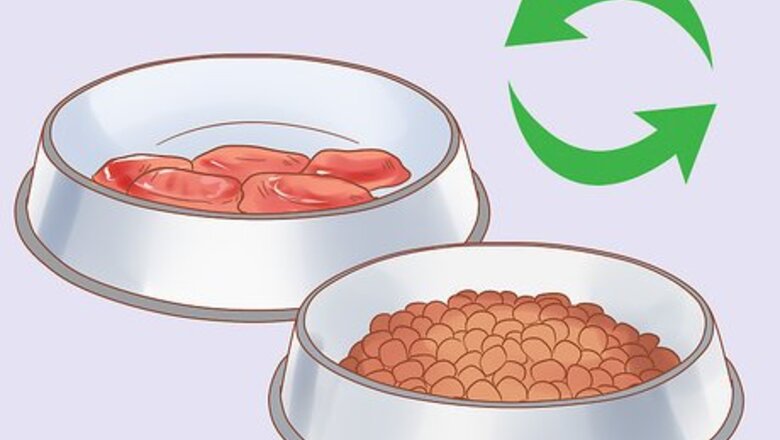
views
Getting Medical Treatment
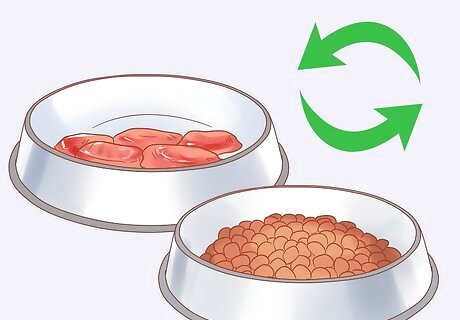
Make changes to your dog's diet. Since gas is often a direct result of what your dog eats, try offering your dog a lower-fiber and easier to digest food. Also, check the cereal content of your dog's food. Those with cereal or soya towards the top of the ingredients list are liable to ferment in the bowel and cause gas. Some vets also recommend giving your dog a protein that it's never eaten before. This can treat food allergies or hypersensitivity that might be causing the gas. Tip: You may want to avoid canned dog foods that contain guar gum or resistant starches in larger concentrations, as these can cause excessive gas. If your dog tends to eat his food very quickly, then getting a slow feeder may also help to reduce his gas. Raw food diets can cause GI problems in some dogs. If that's what you're feeding your pet, maybe try switching it up. Some dogs can be sensitive to certain proteins, and changing the kind of protein you're serving your dog might help with gas as well.
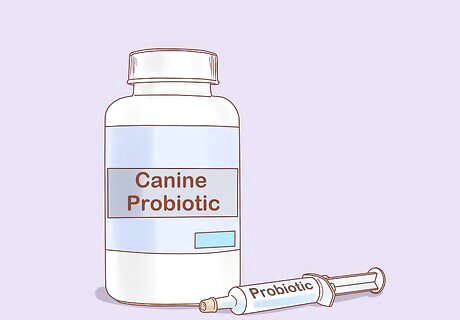
Give your dog a canine probiotic. The vet may recommend giving your dog a canine probiotic or may recommend a dog food that contains beet pulp which contains probiotics. Probiotics can balance the bacteria in your dog's digestive tract which may reduce the gas. Follow the vet's recommendations about dosing and administering the probiotics. Never give probiotics for human use to your dog.
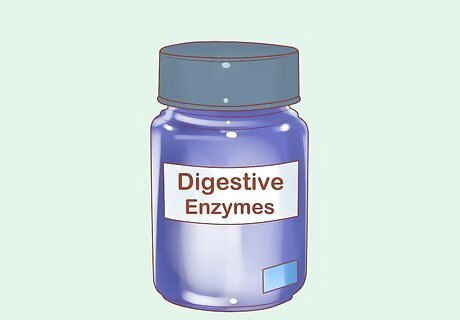
Use activated charcoal or digestive enzymes. Talk with the vet about adding digestive enzymes to your dog's food. These can help your dog break down food easier and reduce the gas. You may also want to give your dog activated charcoal tablets for a short period of time (up to 3 days). These can quickly help your dog break down carbohydrates easier. You may be able to crush the activated charcoal tablets and mix them into a slurry if it's easier for your dog to take.
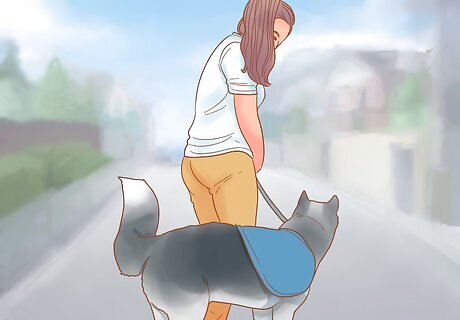
Exercise your dog. Take your dog for a walk after meals or just let it run around the yard. Exercise can help the bowels move so that excess gas doesn't get trapped in its bowels. Vets agree that active dogs are less likely to have excessive gas. Find what time works best for exercising your dog. For example, you may find that your dog has less gas when you take it for a short walk after every meal.
Getting a Medical Diagnosis
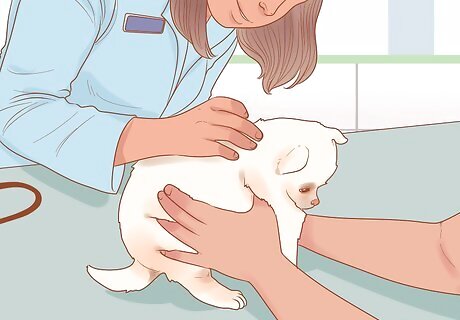
Get a basic veterinary exam. If your dog shows any signs of excessive gas or abdominal discomfort, take it for a medical exam. The vet will look for gastrointestinal causes for the flatulence. The vet will do a basic physical exam to check for a swollen belly or any intestinal problems. You'll also need to give a complete medical history for your dog, so try to keep track of how often it passes gas, when the condition began, and any signs of discomfort you've noticed.
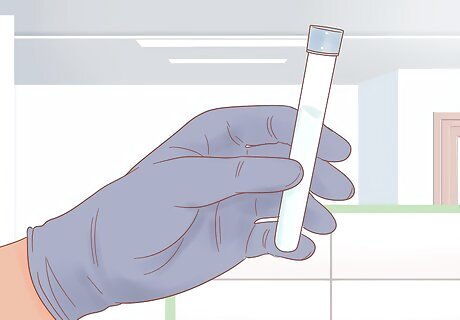
Do blood testing. The vet may want to draw a little blood to test for certain diseases like exocrine pancreatic insufficiency (EPI), irritable bowel syndrome, or pancreatitis. The vet may also test the blood for bacteria or problems with the small intestine. If the vet finds evidence of irritable bowel syndrome, the dog may need more advanced testing.
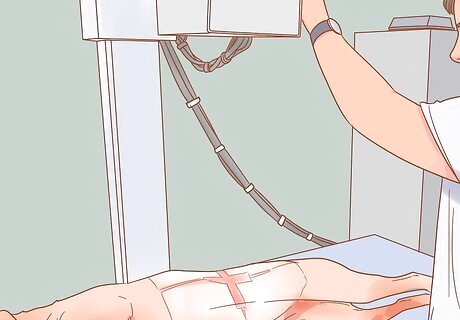
Get x-rays or ultrasounds. To diagnose any gastrointestinal problems that could be causing the excessive gas, the vet will need to do x-rays or ultrasounds. Specifically, the vet will check the size of your dog's abdomen and ensure there isn't anything blocking your dog's stomach (like a foreign object or tumor). Note: An ultrasound can also show whether or not the digestive tract is whole and healthy.
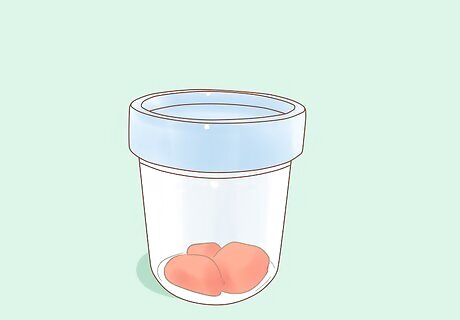
Test your dogs feces. If the vet suspects that an infection is causing the excessive gas, you may need to give a sample of your dog's feces for testing. Fecal testing can check for viruses (like the parvovirus). The tests can also identify fecal parasites which will help the vet create a treatment plan. The vet will give you specific instructions for collecting a fresh fecal sample since it will most likely need to be tested the same day.
Recognizing Excessive Gas
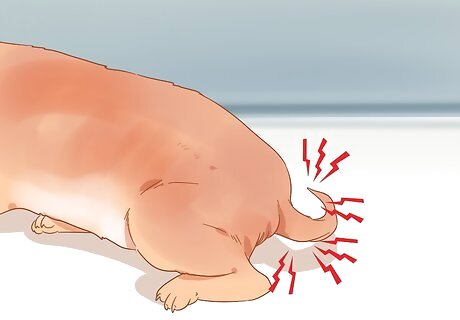
Monitor your dog's flatulence. All dogs experience gas at some point, especially if they eat something that is difficult to digest. But if your dog passes gas regularly throughout the day for several days, it may be time to have your dog examined. Excessive flatulence may be a sign that there's an underlying condition that needs to be treated. Excessive gas may have an odor or be odorless. Several digestive conditions can cause foul smelling gas, so let the vet know if your dog's gas has an odor.
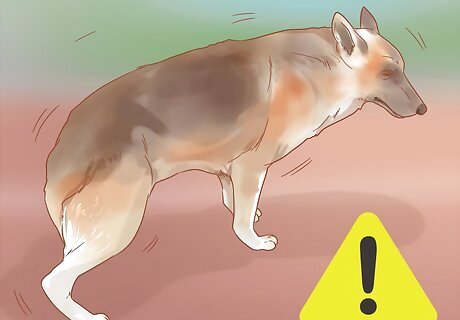
Watch for signs of discomfort. If your dog has excessive gas, it may also show signs of pain or discomfort in the abdomen. You may even see your dog's stomach bloat or appear larger because of the excess gas. Your dog may not seem as energetic or may prefer to rest during the day. Listen to your dog's stomach. You may hear gassy sounds or rumblings coming from your dog's intestines if it has excessive gas.
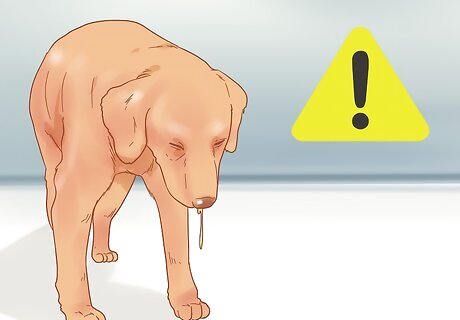
Pay attention to problems with your dog's digestion. If your dog has an underlying problem with digesting food, it may have excessive gas and loose stools or diarrhea. Your dog may also vomit and lose weight since it can't absorb food properly. It may even stop eating food because of the discomfort. Note: If your dog shows any sign of trouble absorbing food, you should get it medical attention immediately. If the dog is otherwise well, consider if you have changed their diet recently. Sudden changes of diet don't give the bacteria in the bowel enough time to adapt, which can lead to flatulence.















Comments
0 comment